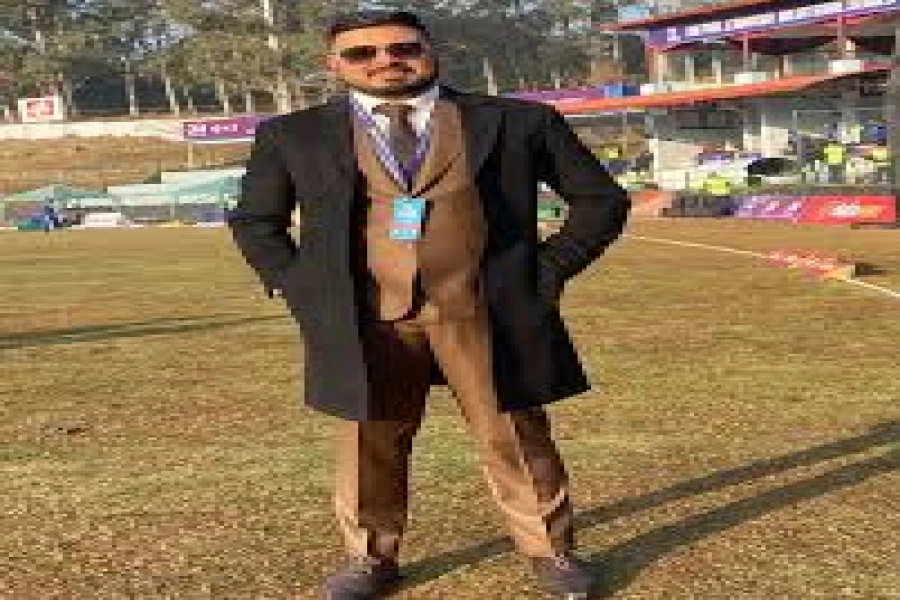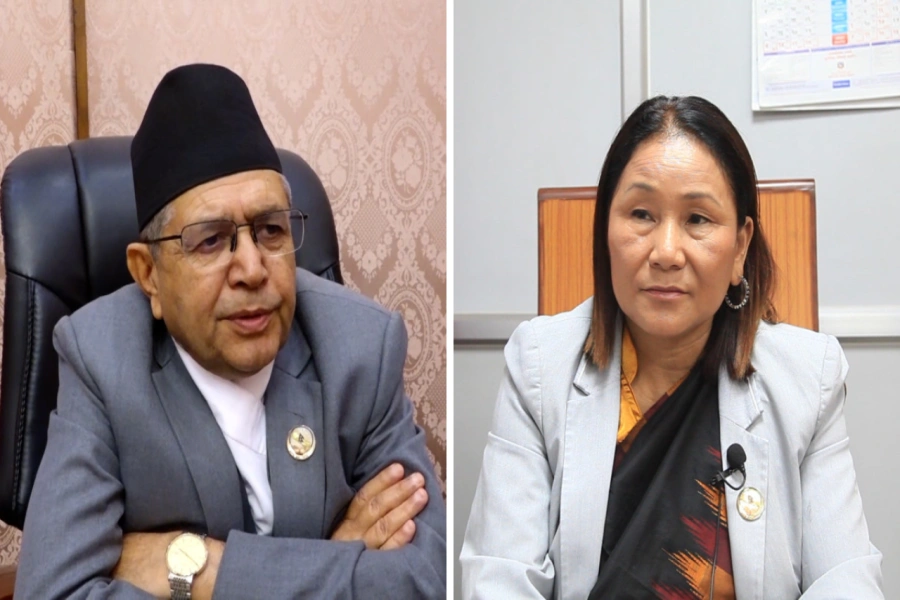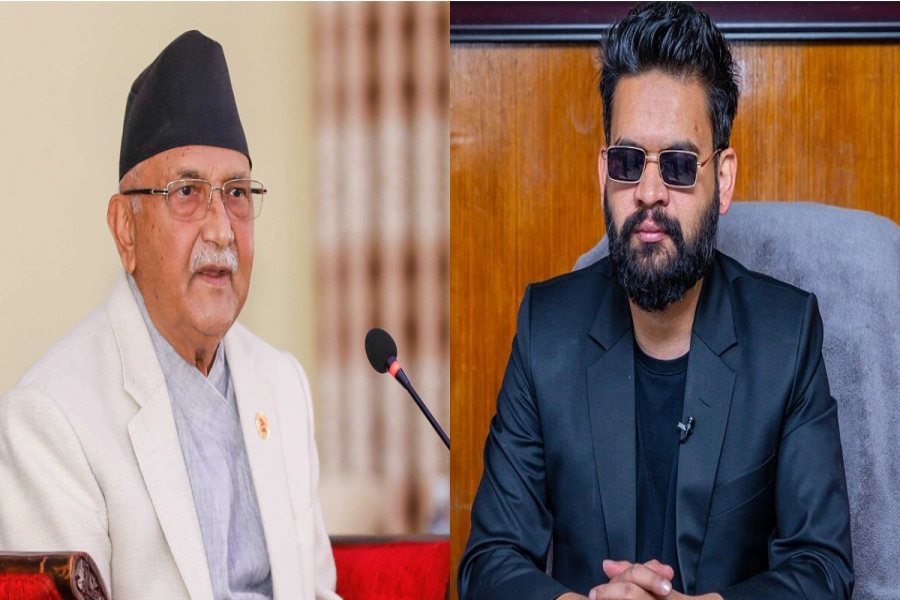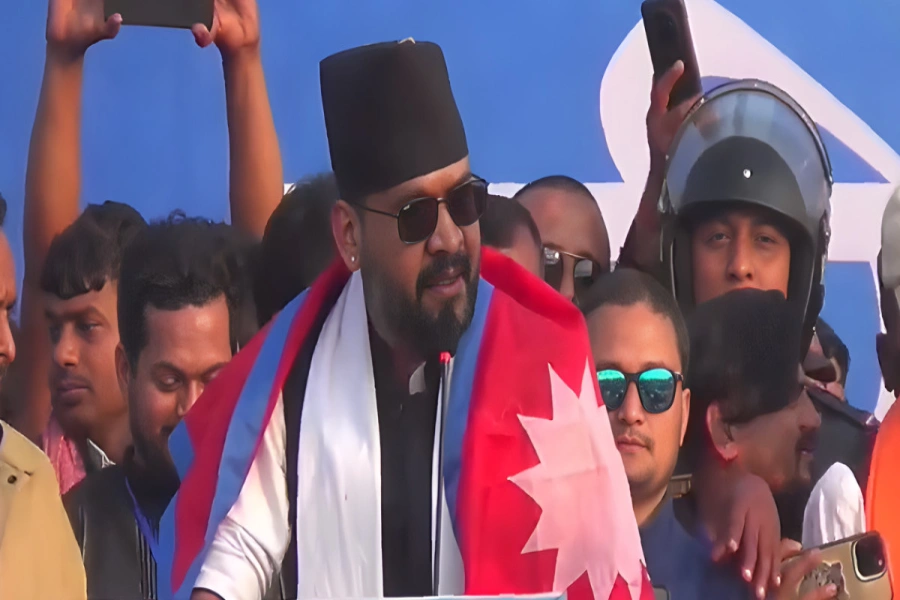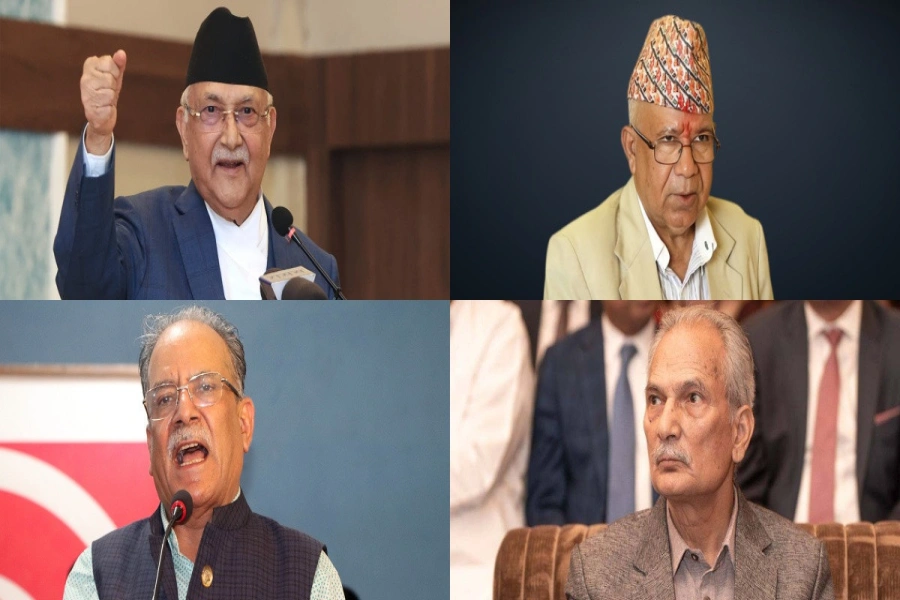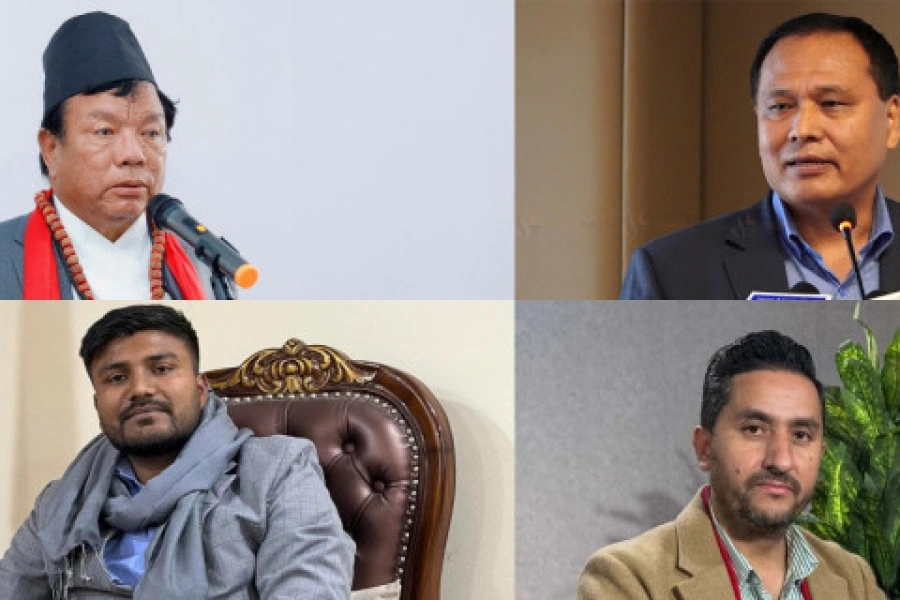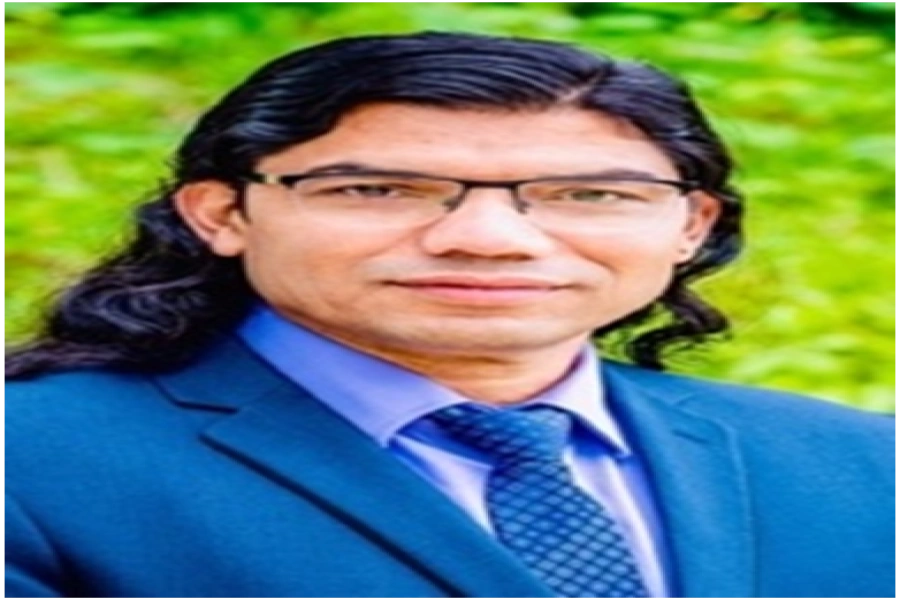Political Scientist and co-author of books Political Leadership in Nepal and Local Leadership in Nepal, Hari Sharma, believes there are serious flaws in our political processes, policies and institutions. In an extensive conversation with Republica’s Mahabir Paudyal, he sheds light on various aspects of Nepali polity.
Eight years after the proclamation of the federal democratic republic Nepali politics still seems stagnant. What went wrong?
Politics is a dynamic process. Ideas are generated and institutions are developed. When institutions become redundant, new institutions come up. Three elements keep politics vibrant: institutions, policies and processes. In our case, democratic institutions have not made the kind of progress we would like to see. The institutional development, which we envision as a democratic development, has not taken place.
When we refer to policies, these are policies of the government of the day rather than state policies. Our policies have been ad hoc. Processes in contemporary Nepal have become victim of convenience. Established processes which are based on rule of law and democratic practice have been greatly undermined in the name of political consensus. Politics becomes dynamic if policies, processes and institutions intermingle and they are in harmonization. That is not the case here. In present day Nepal, policies have become an instrument to rule.
Can you give us some examples of how policies have become instruments to rule?
Take the institution of parliament. We have been hearing of late that the parliament is stuck and has failed to make vital appointments as there are no operating procedures. But the same parliament is deliberating the budget and who gets what benefits, portfolios, perks and allowances. The parliament is stuck only when it comes to issues of vital importance like delivery of goods and services to the people. This is because our policies have been misused for short-term gains. Like I said, convenience is the order of the day and it has undermined established procedures.
You talked about processes. How are they important?
They allow you to be predictable. People want to know what will happen next in terms of delivery of goods and services. Let me give you an example. Let’s say I am a 16-year-old and am eligible for driving license. If I apply for it, follow certain procedures I will get the license. Whether you get the driving license is predictable because there is a well-laid process. It should be the same with the state’s delivery of goods and services. But if you go to a government office, you won’t know if you will get the desired service. It is so unpredictable.
Let me give you another example. Politics allows people to collectively decide their fate, to decide how to use their resources and how to manage their state of affairs. Rule of law, policies and processes make these affairs predictable. In our case, policies and processes have been hijacked by certain groups, undermining others’ ability to participate in politics. Because processes are undermined, there are policy uncertainties. So a small clique of vested interests is taking over resources rather than distributing them among the people.
If so who do you blame for bringing the country to this state of affairs?
The easiest way is to blame politicians. Yes, they are responsible for many of our ills but we should also understand that politics survives because of politicians. It is equally important for citizens, as participants in the democratic process, to raise their voice if they feel their claim has been undermined by vested interest groups. I was reading a story a few days ago about parliamentarians who are investors in hospitals and schools also drafting health and education policies. They will surely have policies that favor their institutions. It is the responsibility of the citizenry to speak against this kind of abuse of power.
Nepali Congress, Unite

If politicians are not to be blamed, what in your view is the root cause of problems in Nepal?
A single factor cannot account for all wrongs. But since 2002 there has been systemic erosion of opposition in the name of political consensus and transition. Political consensus is required for basic process and vital institutional issues. One of the greatest political consensuses we have seen in the recent times is over federalism. But federalism remains tricky to implement. Everybody agreed to federalism but it seems nobody was keen on it. This is because consensus on federalism was only rhetorical. It was not based on well laid out processes and procedures.
Can we say that federalism is not succeeding in Nepal as the majority of people don’t want it, or are ambivalent about it?
Federalism is essential in this country to address representational questions and historical injustices. Talk to any politician and they will say federalism is good. In the past eight years, we have endlessly talked about it. But we have not laid down the procedures to get there. So federalism will fail not because of the public, or because it’s a flawed idea but because of the very people who are supposed to be its champions.
People don’t expect anything good of Nepali political leaders. Why so?
In any society, one of the major functions of politics is to manage people’s expectations. People ought to have expectations for without them we cannot move forward. It is the responsibility of the political institutions to mange those expectations. If you cannot manage expectations what follows is frustration. Frustration can also be managed through political means and self-learning. But if you fail to manage frustration, apathy follows. When people start becoming apathetic, this is dangerous because nothing works in such a situation.
Where do you find the Nepali society in this continuum?
Our politics is stagnant because we are at the threshold of frustration and apathy. At one time, we had great expectations from the new political order, and then we became frustrated with the political leaders. Now we seem to have passed the phase of frustration and entered the phase of apathy. Therefore there is silence. There is no opposition in the country. There is no opposition in parliament. The civil society is silent. It is the duty of the opposition, which works as a watchdog, to question the government when it undermines well-established procedures and practices. When it comes to issues of broader concerns of the people, the opposition is silent. But there is political unity when it comes to sharing resources and benefits. Political consensus in Nepal has become political connivance. Political consensus has as such become an abused concept in Nepal.
How should people respond to this crisis then?
They need to talk more and more. If the political class does not listen to them they should form a peer group and share their problems with other members. Nepali society needs to be more discussed and debated and through this churning we need to find ways to emerge from this morbidity. Politics needs to be reinvented through popular debates and discussions. The kind of energy and hope that we had 10 years ago is gone. This hope and energy to move forward should be revived. But this is not happening. In the name of political consensus Nepali society has become monolithic. It talks about progressive ideas but in practice political consensus has become regressive.
Are you hinting at the behavior of ruling parties?
I don’t want to single out any party. But I must say that one of the most progressive parties of Nepal has suddenly become very conservative on citizenship and nationalism. Parties like Congress and UML have failed to distinguish nationalism from patriotism. Nationalism is inclusive. Nepal was always a diverse country but the idea of a Nepali came through historical processes. What has happened today is we talk about diversity in language, religion and ethnicity. But we say my language, religion and ethnic orientation is superior. Outwardly, you see diversity but underneath, there is still a lot of conservatism. You talk about federating the country as per the aspirations of people, but you centralize powers.
But there are many people who question the relevance of federalism for Nepal.
Great historical changes can be either planned or unplanned. May be we never planned for federalism but it came to us and it is here. Yes, there are those who say federalism is a foreign imposition. But there are also people who also say federalism is their demand. What do you say to them? So when something comes to you as a gift of history or gift of some ongoing process, you have to accept it. The same with federalism. Political leadership should realize that history is always full of surprises and unintended consequences. And you have to deal with it accordingly.
How do you see Madhesh-Janajati protests of last nine months? What should be done to address their concerns?
When the constitution was being deliberated some groups of Madheshi and Janajati parties walked out of the process. Disagreements and dissensions are natural in politics. Contestation from the periphery always expands possibility of politics. So the dissent by Madheshi parties was not wrong. The problem started here when geopolitical dynamics started affecting Madhesh agitation.
We must engage the dissenting parties. Here everyone talks about bringing them to dialogue table but there have not been genuine efforts for this. Congress claims it will do so but it does not. That is why I say there is no opposition in this country.
It seems like you are not happy with the Nepali Congress as opposition party.
Opposition is a formal part of parliamentary process. Those who are not part of this process are called dissidents. Congress and others in parliament are not dissidents. They are opposition. But they do not act like one. This is why I say there is no opposition. When the government does something wrong, we go to the press, the civil society and the opposition as they have formal engagement with the state. In Nepal, it is like everybody is part of the state and nobody is part of it. Everybody seems to be dissenting, everyone has complaints and grudges but there is no formal way to vent them out. It is then that politics stagnates.
A popular feeling in Nepal is that the current state of uncertainty is result of lack of statesmanship.
The question you have raised is related with leadership. I have also been grappling with this question for some time. Democracy is based on the idea of equality. The idea is we are all equal and we come to the helm of affairs by following certain process. There is no special requirement. You or I as a Nepali citizen have equal right to become the country’s president or prime minister. You do not have to be an extraordinary citizen for this. Democracy doesn’t envision extraordinary leaders.
We crave for some sort of superheroes to come and rescue us, maybe because our systems have not been established or because we have been in perpetual transition for the past 70 years or because we live in an age of uncertainties. We have never thought of ourselves as a democratic society where everybody is equal.
Anyone can be a leader. The only requirement is thoughtfulness, sincerity and the ability to take people along. Democracy doesn’t imagine a superhero. Winston Churchill, the hero of Second World War and one who was considered to be great statesman, lost the election. Statesmanship is a romantic idea. It does not go with democracy. Normalcy is what goes with democracy. Statesmanship goes with the idea of dictatorship.
But then why do people crave for statesmanship?
Like I said, we are at a stage of transition from frustration to apathy. We see no hope in the horizon. But that is not the reason to start searching for a superhero. As victims, we the citizens should start raising vital concerns ourselves. We need to talk for and about ourselves. Are statesmen important in times of transition and difficulties? But before that you need to ask where they come from. I don’t see Lord Krishna or Napoleon coming to our rescue. I hear people and even political leaders talking about the need for a benevolent dictator. This is against democracy. It is an insult to the people to crave for benevolent dictator after so many revolutions and loss of thousands of lives.
How do you envision the evolution of Nepali politics in the near future?
Our politics is riddled with multiple claims and counterclaims and regional and identity issues. In this noise, the vital question concerning the national economy has been forgotten. Class questions used to dominate politics but we do not see class issues being raised these days even while economic inequality is rising. Even political parties have stopped talking about political economy. They are more focused on political representation. My worry is that if we focus too much on political representation and party questions and fail to take note of other social and economic issues, we might be caught by surprise. The unthinkable might then happen.
At the moment we are focused on rebuilding structures destroyed by earthquakes. What about social rebuilding? The earthquakes have shaken the state-society relations. We are talking about destroyed houses but we seem not bothered about broken hearts and shattered families from huge out-migration of youth. We are least bothered about what will happen if the Middle Eastern economies collapse and thousands upon thousands of youths return home all at once. But these important issues are not discussed among political parties.
We need to be prepared to tackle likely political and social disasters. Nepal, which lies between two giants in the forms of India and China, has maintained its independence and sovereignty for pas t three centuries. The secret of our survival for last 300 years is our rulers’ tactfulness in managing relations with these two countries. Are we dealing now with these two giants with the same tactfulness?



